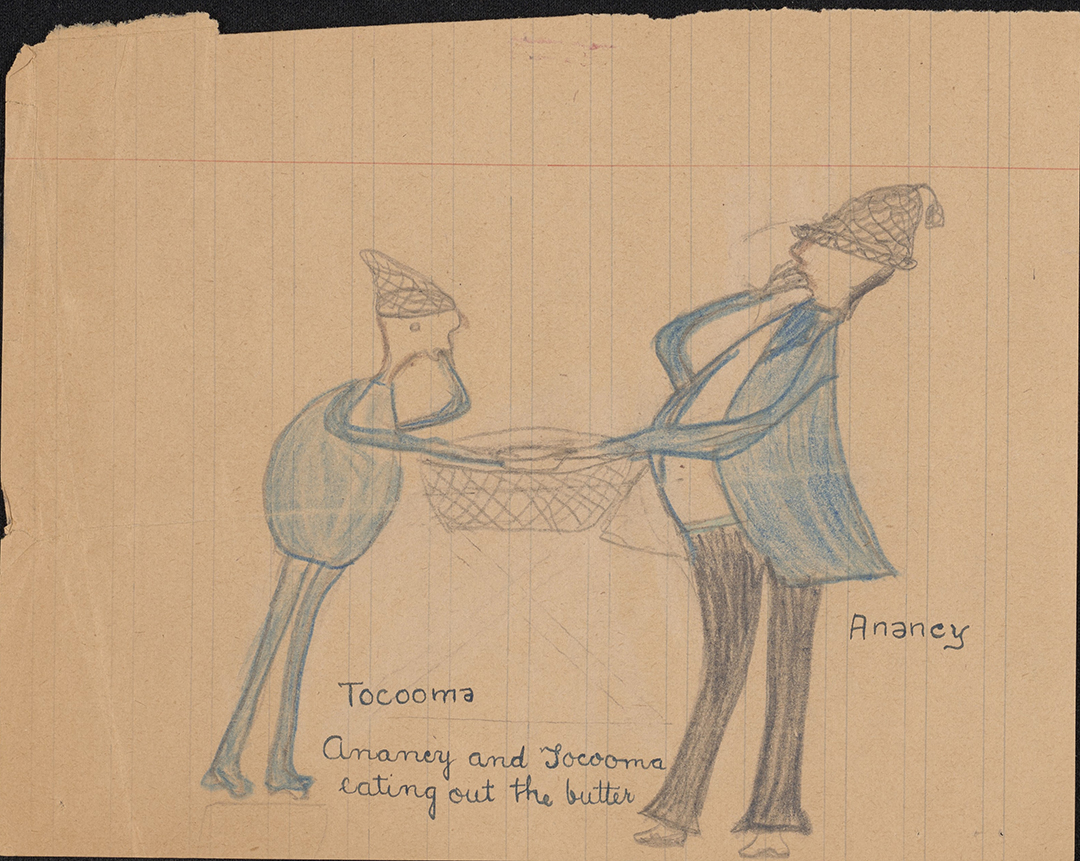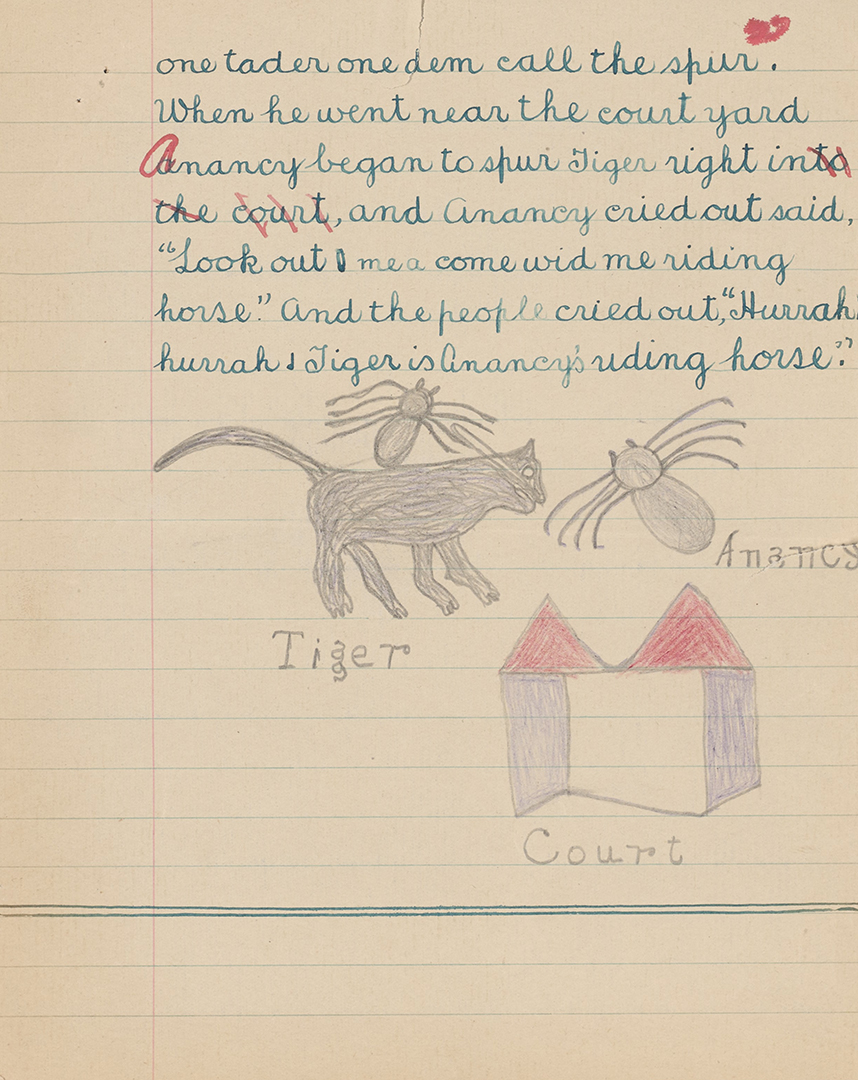Jamaican Folktales Get Their Moment to Shine
A few departments within the BC Libraries teamed up this year to highlight the Joseph J. Williams, SJ ethnological collection held by Burns Library: we gave it a descriptive dust-off, enhanced visibility, and digitized selected content. Not only does the collection include anthropological manuscripts, correspondence, maps, government reports, and financial, legal, and shipping documents collected by Williams while he was a missionary in Jamaica, but it also contains the submissions for a 1930s-era story competition for Jamaican school children. Over 4,000 hand-written tales with illustrations detailing the adventures of Anansi, the trickster spider character who forms a significant part of the folkloric tradition in West Africa and the Caribbean, were submitted to and retained by Williams. The paper these wonderful stories are written on has become extremely fragile over time and, despite their importance in introducing students to primary source materials in classes such as African Diaspora and the World II (HIST111401), they were nearly inaccessible.

The enlarged and updated digitization lab in Burns Library is now able to provide higher quality images that meet digital preservation guidelines known as FADGI 3 standards. Using a copy stand setup, the images were taken of each item lying flat, post-processed, and batched with the collection’s new description for posting on BC Digitized Collections. Students as well as researchers and scholars all over the world now have access to digital copies of children’s versions of Anansi stories, which were previously only available in the Burns Library reading room or on microfilm. Not only is this a very exciting opportunity for further scholarship, but digital access to these materials helps to preserve the original fragile documents, which can no longer endure such a high-level of use.

Hand-in-hand with digitization for increased visibility and accessibility, redescription of the Anansi stories added additional context and details for scholarly analysis. While the stories were previously listed numerically, information from Williams’s indexes allowed us to group them by administrative parish and school, and to add information about each school’s religious affiliation.
Stephanie Hall, Annalisa Moretti, and Lynn Moulton presented on the Williams collection at the New England Archivists Spring Meeting 2018 in New Haven, Connecticut. The presentation, “Enhancing Underrepresented Collections and Reaching New Users,” also included archivists from two other Massachusetts institutions. The Burns Library portion of the presentation focused on the efforts of our staff to increase the discoverability and usability of the Anansi stories, while also recognizing the importance of bringing to light material created by less-traditionally-documented people. The presentation was well-received and awarded the New England Archivists Inclusion and Diversity Session and Travel Assistance Award.